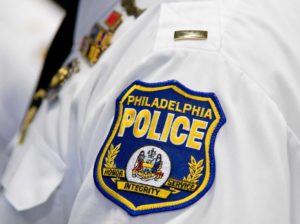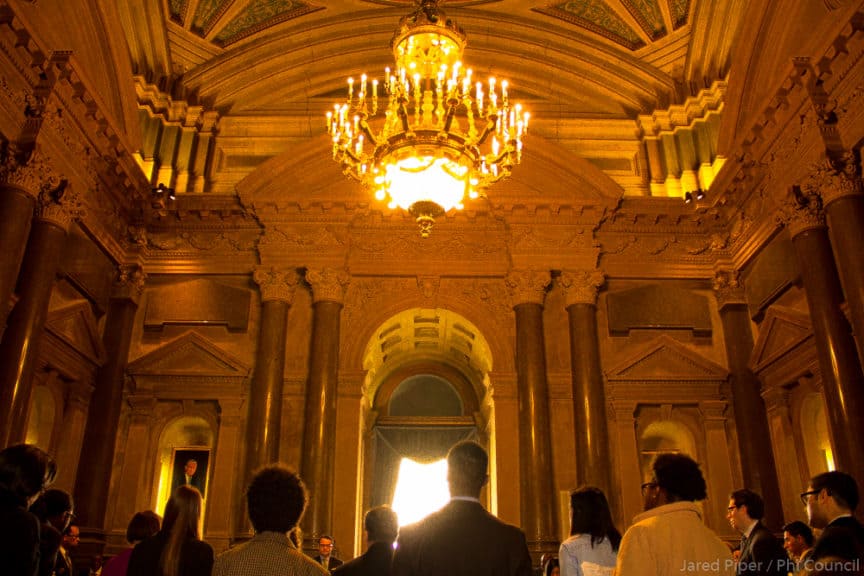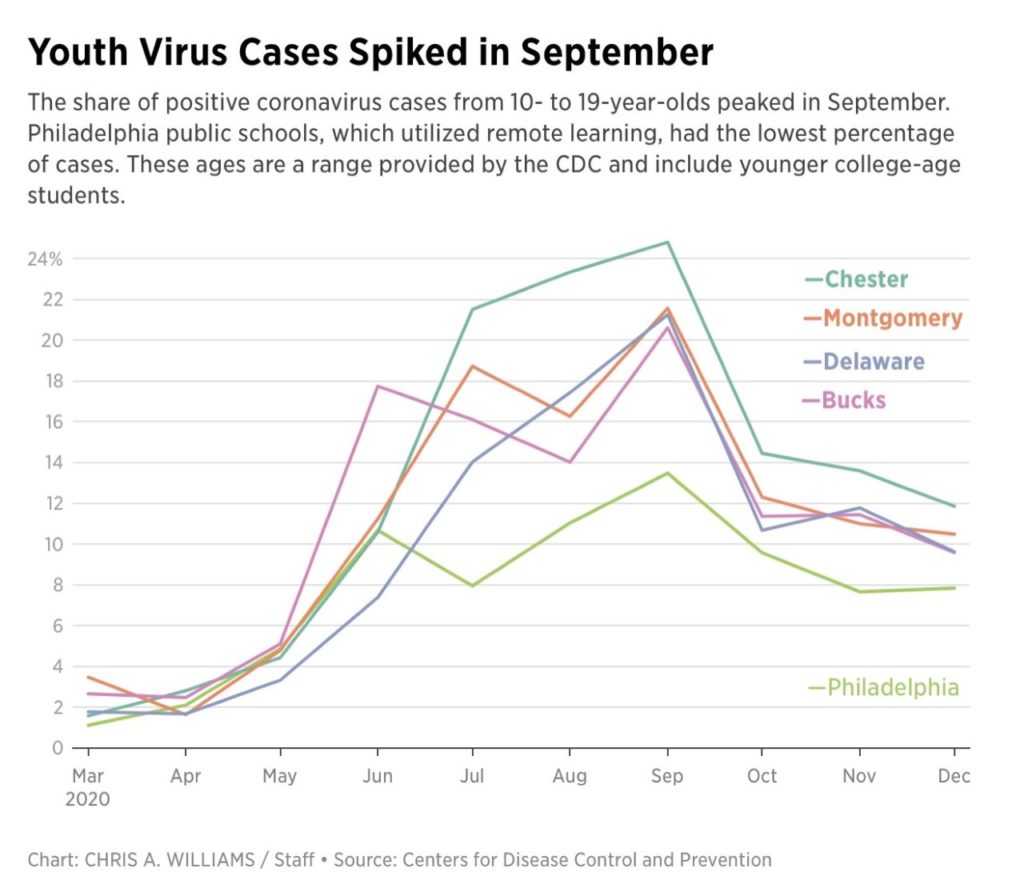 CITY COUNCIL INTRODUCES LEGISLATION CREATING A CITIZENS POLICE OVERSIGHT COMMISSION
CITY COUNCIL INTRODUCES LEGISLATION CREATING A CITIZENS POLICE OVERSIGHT COMMISSION
 Councilmember Curtis Jones, Jr. (4th District) introduced legislation Thursday that would repeal the existing Police Advisory Board and replace it with a Citizens Police Oversight Commission.
Councilmember Curtis Jones, Jr. (4th District) introduced legislation Thursday that would repeal the existing Police Advisory Board and replace it with a Citizens Police Oversight Commission.
The independent Citizens Police Oversight Commission will reflect the geographic and population diversity of the city, Jones said, and is designed in a way to boldly answer the demands of the community. Philadelphia has been beset with citizen unrest over the past year over incidents involving the police and the community, such as the shooting death by police of Walter Wallace in West Philadelphia.
The powers of the new Commission will be expanded from current law. Up until now, the Police Advisory Board operated solely to advise on the Philadelphia Police Department’s policies and procedures.
The Commission will have authority to issue subpoenas to compel witness testimony or documents for investigations, retain their own Chief Counsel separate from the Law Department, and make disciplinary and policy recommendations to the Police Department.
It will receive and investigate all citizens’ complaints against police and will have the ability to receive and investigate in limited circumstances complaints that police department employees make against a fellow officer.
In addition to citizens’ complaints, the Commission will investigate all incidents when an officer discharges a firearm and all incidents where someone dies or is seriously injured during a police interaction. It will have direct access to crime scene interviews and investigatory files, subject to applicable state law.
The Commission will post detailed information regarding complaints, investigations, and reports for the public to access on its website, as well as have the authority to enforce strong penalties for any employee, department, or city agency which refuses to cooperate or relays false information to the Commission.
A selection panel will be formed to solicit applications from the public who are interested in serving on the new Commission.
Councilmember Jones, Council’s Majority Whip, said “the purpose of the Citizens Police Oversight Commission legislation is three-fold – to restore public confidence, to provide a fair and equitable process of citizens’ complaints, and to create better police community interactions.”
“The legislation is a good starting point, and I look forward to working with Councilmember Jones to create a vigorous, fair commission with real teeth to conduct appropriate oversight of the police department,” said Council President Darrell L. Clarke (5th District).
COUNCIL PROPOSES COVID-19 VACCINATION CONTRACT REFORMS
Council leaders yesterday introduced legislation to address deficiencies in how the city Health Department allowed an unqualified group of non-public health professionals gain access to thousands of doses of COVID-19 vaccine for distribution to city residents.
The legislation, introduced by Councilmember Cindy Bass (8th District) on behalf of Council President Clarke, addresses several issues arising in how the Health Department issues contracts or enters agreements with non-city providers to administer COVID-19 vaccine.
“There is no more important public health function in Philadelphia now than delivering COVID-19 vaccine safely, efficiently, equitably and transparently to Philadelphia residents,” Council President Clarke said. “Council has a legislative oversight role to play in ensuring that the city contracts with other providers in the right way, and this legislation is designed to tighten up that process.”
“Council intends to get to the bottom of this matter in our hearing, and to understand how the city came to award thousands of doses of COVID-19 vaccine to a group that seems unqualified and inexperienced,” said Councilmember Bass. “We owe our citizens and residents real answers – and we intend to find them and recommend changes to make sure this doesn’t happen again. It makes your blood boil.”
Here is what the legislation proposes:
Contract Relationship Deemed to Exist. If the city provides vaccine to any organization, a contractual relationship exists – whether there’s compensation or not.
Contract Requirements. No vaccine doses can be distributed to any entity to administer unless a contractual agreement has first been entered into. No city department can award a contract to administer COVID-19 vaccine to another group unless the city specifies in writing the experience a group must have; and evaluates the group’s response to see if it meets the criteria.
Economic Opportunity Plan Requirement. The city department must specify that the group it is awarding a contract to administer vaccine will comply with the city’s Economic Opportunity Plan requirements.
Notification of Council. No less than 2 days before entering into a contract with a group to administer vaccine, the city department must notify the President and Chief Clerk of Council.
Reporting Requirements. The Health Commissioner, or an official named by the Mayor, must submit to the President and Chief Clerk of Council – and post on the city’s official website – this information once every two weeks:
- The entities or groups authorized to distribute COVID-19 vaccine
- The number of vaccine doses provide to each group
- The number of doses actually administered
- The race, ethnicity and age of the people vaccinated, and
- The priority category (1A, 1B, 1C or 2) of the vaccinated persons
For two consecutive sessions, Councilmembers have questioned how and why the Health Department elected to send nearly 7,000 doses of vaccine to an unproven group of college students – while directing less than 2,000 doses to the Black Doctors COVID-19 Consortium, an organization founded by a surgeon and staffed by nurses and other health care professionals, which has tested over 21,000 Philadelphia residents for the virus during the pandemic. A city deputy health commissioner resigned over the scandal last week.
Councilmember Allan Domb (At Large) summarized his colleagues’ frustrations over this episode in Council yesterday, noting that other U.S. cities were using sports stadiums to vaccinate residents, and wondering how and why Philadelphia can do a better job. “People call my office constantly about this, and they don’t ask what Dr. Farley’s doing, or the mayor, or Council. They blame me. It’s our job to work together with the administration and regain our residents’ trust.”
In addition to the legislation, Council will hold a public hearing today in its Public Health & Human Services Committee, chaired by Bass, to examine how the Health Department came to distribute nearly 7,000 doses of COVID-19 vaccine to Philly Fighting COVID, a group of entrepreneurial students from Drexel University with little to no background in public health. The city terminated its undocumented vaccine arrangement with the organization last week, amid news stories concerning the group’s questionable practices and conduct. The hearing will be broadcast live beginning at 1:00pm on Xfinity Ch. 64, Fios Ch. 40 and streamed at www.phlcouncil.com/watch.
COUNCILMEMBER GREEN INTRODUCES LEGISLATION CREATING A PUBLIC BANK
Last week, Councilmember Derek Green (At Large) introduced a resolution that would establish a Philadelphia Public Banking Authority. Green’s idea of a public bank could be significant for many city residents, particularly local minority-, women- and disabled-owned enterprises, by providing equitable access to credit and helping families to build long-term, generational wealth.
Green’s legislation would establish a public bank as a city authority that would have the power to provide loans, issue tax-exempt bonds, finance city construction projects, and perform other banking functions.
It can also help the city play a more active role in eliminating a long-standing history of redlining as well as reducing poverty. Philadelphia has more than 400,000 people living below the poverty line. Green’s public bank idea can also lead to expanded opportunities for grassroots citizen and municipal collaboration to provide financial literacy and education to under-served communities.
Green, who chairs Council’s Finance Committee, began his career as a banker, and told his colleagues last week he saw first-hand how few Black-owned and minority-owned businesses had access to capital vitally needed to grow their businesses.
“The city must and should take a more active role in helping these kinds of businesses to grow,” he said.
SEEN ON SOCIAL MEDIA…
Today, for #BlackHistoryMonth, I’m kicking off my 3rd Annual #BlackBusinessCrawl!
All month, I’ll be profiling #BlackOwnedBusinesses across Philly to highlight this year’s theme of #BlackExcellence pic.twitter.com/ago20nRUog
— Councilmember Isaiah Thomas (@CMThomasPHL) February 1, 2021
IN OTHER NEWS…
Councilmember Brooks Offers Resolution to Examine Payments in Lieu of Taxes by Non-Profits to Aid Public Education. Last week, Councilmember Kendra Brooks (At-Large) introduced a resolution authorizing the Committee on Children and Youth to hold hearings examining the impact of the property tax exemption for nonprofit institutions on the School District’s budget and resulting environmental hazards in District facilities. Brooks’ resolution was co-sponsored by seven members of Council.
Brooks, a longtime education activist, is a proponent of large, tax-exempt nonprofits contributing foregone property taxes annually to schools in the form of payments in lieu of taxes, or PILOTs. Renewed calls for universities and other nonprofits to make PILOTs have arisen as the School District projects a nearly $900 million budget shortfall by the end of fiscal year 2026 due to the COVID-19 pandemic.
“We need to better understand the budget crisis that our schools are facing, and how tax exemptions have contributed to the dangerous state of many of our school facilities over the years, schools that primarily serve low-income Black and brown students,” said Councilmember Brooks. “Now is the time to reevaluate tax handouts that we can’t afford and ask if everyone in this city is paying their fair share for public education. It is what our city and what our students deserve.”
Proponents of PILOTs argue that Philadelphia needs more permanent sources of revenue in order to address the many environmental hazards within School District facilities. Some of these hazards include asbestos insulation and lead paint along with other triggers like mold.
The School District estimates that its facilities require approximately $5 billion in capital repairs to ensure a safe and healthy environment for students.
Opponents of PILOTs point to significant resources that non-profit institutions spend annually to improve communities, such as neighborhood schools.
Council to Hold Hearings on the Impact of the Housing Crisis on Seniors. Another resolution introduced by Councilmember Brooks yesterday authorizes Council to hold hearings on the challenges facing aging Philadelphians in securing affordable, stable housing.
The resolution authorizes the Committee on Intergenerational Affairs and Aging to hold hearings examining how the ongoing housing crisis is impacting senior Philadelphians and evaluate solutions that would increase access to safe, affordable housing. The resolution was co-sponsored by 14 members.
The hearings will focus on the disproportionate impact of the affordable housing and homelessness crisis on seniors. A majority of senior citizens in the city, nearly 206,000, own their homes. The first hearing will examine the challenges that these homeowners face, from the growing threat of foreclosure to the difficulties that senior Philadelphians face in affording home repairs. Tangled title issues are a particular concern for many seniors.
Subsequent hearings will focus on seniors who rent their homes, who make up approximately 86,000 of households in Philadelphia. While rental rates in Philadelphia have increased 21% between 2000 and 2018, many of the City’s seniors rely on a fixed income that cannot keep pace with market prices.
“Just as the COVID-19 pandemic has disproportionately impacted our senior neighbors, so has the housing crisis,” said Councilmember Brooks, Chair of the Committee on Intergenerational Affairs and Aging. “Not only is housing critical for the health and wellbeing of Philadelphia’s seniors, it is the primary way intergenerational wealth is transferred — and too often, lost. Older adults in Philadelphia are among our most vulnerable community members. We need to ensure we are prioritizing these community members and their needs.”
OTHER SIGHTS AND SOUNDS FROM THE COUNCIL WEEK
Stated Meeting of Philadelphia City Council 1-28-2021
Special Committee on Child Separation 1-29-2021
Stated Meeting of Philadelphia 2-4-2021
PHILADELPHIA FACTS AND FIGURES
The next Stated Meeting of City Council is scheduled to take place on Thursday, February 11, 2021 at 10 a.m. The Meeting will be held remotely due to the ongoing pandemic, and will air on Xfinity Ch. 64, Fios Channel 40 and stream at www.PHLCouncil.com/watch.



